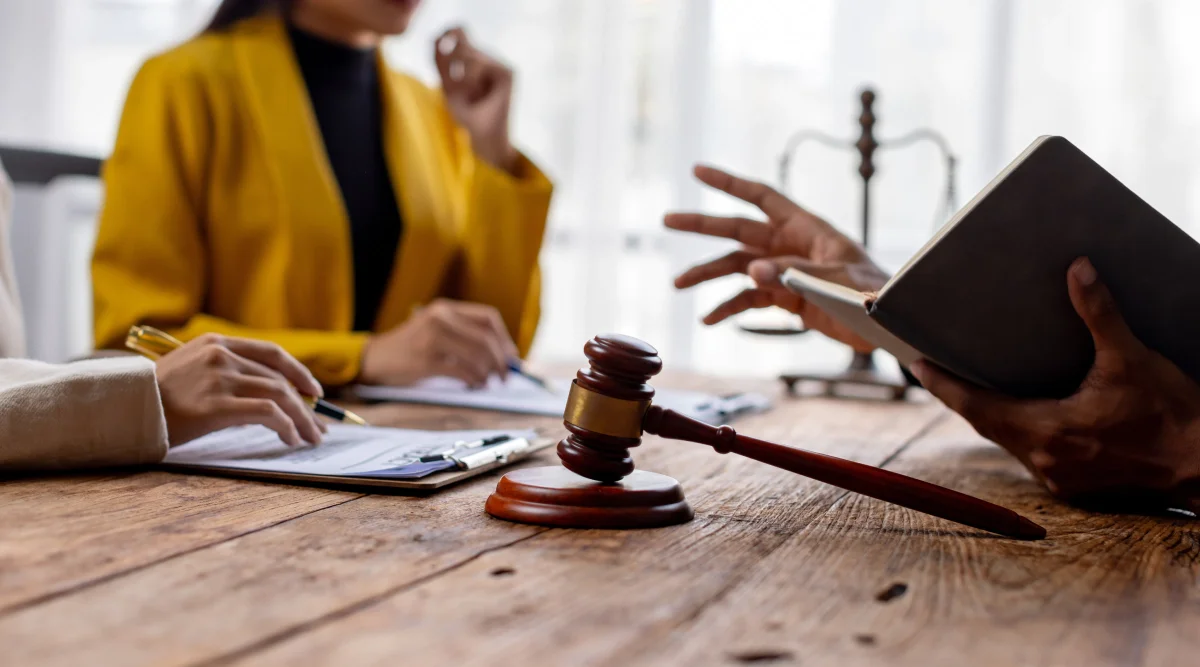Broadly defined, "hearsay" is testimony or documents quoting people who are not present in court. When the person being quoted is not present, establishing credibility becomes impossible, as does cross-examination. For this reason, hearsay evidence is inadmissible unless it qualifies for an exception.
As with any rule, there are exceptions, and the hearsay rule has plenty of them. Below, you can find three explanations of some commonly known—and misunderstood—exceptions to the hearsay rule.

1. Excited utterance
An "excited utterance" is when someone makes a statement during the heat of the moment, often unfiltered and potentially truthful. It’s often seen in criminal cases, where someone reacts immediately during or just after a criminal act. The rationale behind this exception is that a person caught up in the moment probably doesn’t have the time or state of mind to fabricate a lie.
2. Statements against interest
Statements against interest, sometimes called admissions or confessions, are statements or actions that in some way adversely affect the divulging party. The confession doesn't need formal admission, such as a statement given to the police. Formal admissions are admissible as part of the public record.
The theory governing this exception is that a person would not fabricate a statement that doesn’t work in their best interest. Of course, the witness offering the hearsay testimony may not be telling the truth, but that goes to credibility, not admissibility.
A teacher, for example, may confide to a friend that she suspects one of her students is the victim of abuse, but she does not want to report it to the authorities because she fears she may be wrong. In most states, teachers are required by law to report any suspicion of abuse, regardless of the level of uncertainty. Failure to report may have serious consequences, and thus a teacher may refuse to testify so as not to self-incriminate. The testimony of the confidante, however, would be enough to have the teacher's suspicions entered into evidence.
3. Matter of record
There are several ways to meet the matter of record standards for admissibility. Any properly kept official government records, such as income tax returns and employment information, are admissible. Private business records are also admissible, so long as a qualified witness can identify them and explain their maintenance or clarify their meaning.
Prior court decisions or documents should also be admissible, even when they reference witnesses who are not present. It is also possible to have the prior testimony of an unavailable witness admitted; however, the judge may not allow it in the absence of a transcript.
Generally, any official document—such as birth certificates, promissory notes, or contracts—should be admissible so long as the document's accuracy can be verified in some way, such as:
- Providing the notarized original to the court
- Subpoenaing a witness who signed the document to testify
- Showing file-stamped copies from other courts where available
Navigating hearsay
Knowing when you can and cannot use hearsay evidence is crucial, especially if you are representing yourself in court as a pro se litigant. Not only will you have the ability to build a stronger case for yourself, you will also know when to object to the opposition's use of hearsay, and on what grounds.
But in most cases, it’s best to have an attorney represent you in any court proceeding. If you have any general questions for your situation, you might reach out to an attorney through LegalZoom’s network.
Mariah Wodjacz contributed to this article.

